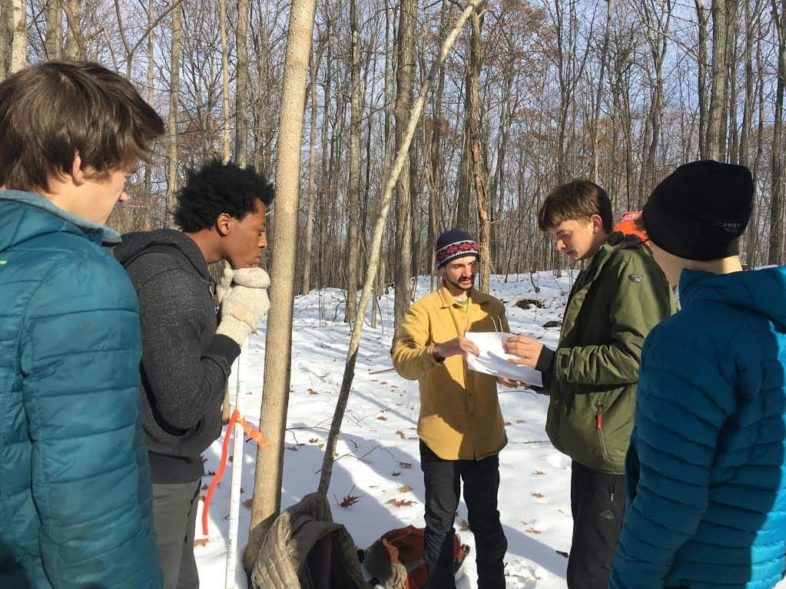
Middlebury College students participating in a VCE community science project – setting up a monitoring station for the Vermont Vernal Pool Monitoring Project. © Kate Talano
Over the last year, many of us have taken much-needed, concrete steps toward making our communities, working spaces, and lives more inclusive and welcoming. We’ve seen firsthand how labels used to describe groups of people have the power to bring us together or push us apart. Since VCE’s founding, and more recently through our commitment to equity, diversity, and inclusion, we have strived to unite (all) people and science for conservation. The legions of naturalists–until now, referred to as “citizen scientists”–who work with us have contributed immeasurably to the success of our field research and monitoring projects.
Historically, the term citizen in citizen science was meant to distinguish amateur naturalists from professional scientists, but that distinction is potentially divisive and no longer relevant. We learned in our 2019 Citizen Science Survey that 46% of respondents are current (or former) professionals in science and conservation fields. Also notable is the fact that all VCE staff biologists serve as citizen scientists for other non-VCE research projects.
At present, the term citizen is heavily politicized. Continuing to use “citizen science” instead of the more inclusive term “community science” can alienate non-citizens on U.S. soil and even discourage potential international collaborators. A person’s professional status, nationality, race, religion, and gender identity have no bearing on their involvement in and contributions to biodiversity research.
Like all organisms in nature, we humans are diverse, and we are all connected. Ultimately, creating a community of people who get excited about scaling peaks in search of mountain birds, scouring meadows for butterflies and dragonflies, monitoring amphibians in vernal pools, or counting birds from the comfort of home is our real goal. Harnessing the power of community is what allows VCE to effect positive change for wildlife populations, and that’s how we’ll describe our collaborative science efforts from here on out–as community science. Please contact us at if you have suggestions for how we can make our community science programs even more inclusive and welcoming.

Great change! Thanks for staying current and reflecting changing values and norms.
I agree that community science is more inclusive than citizen science. Thank you for starting the discussion.
I think that moving toward Community Science/Scientist is a great idea! Thanks!
VCE,
Thank you for making this change. In this time of such extreme division, our choice of language matters. Thanks for your ongoing important work. I’m happy to be a part of the inclusive community that is VCE.